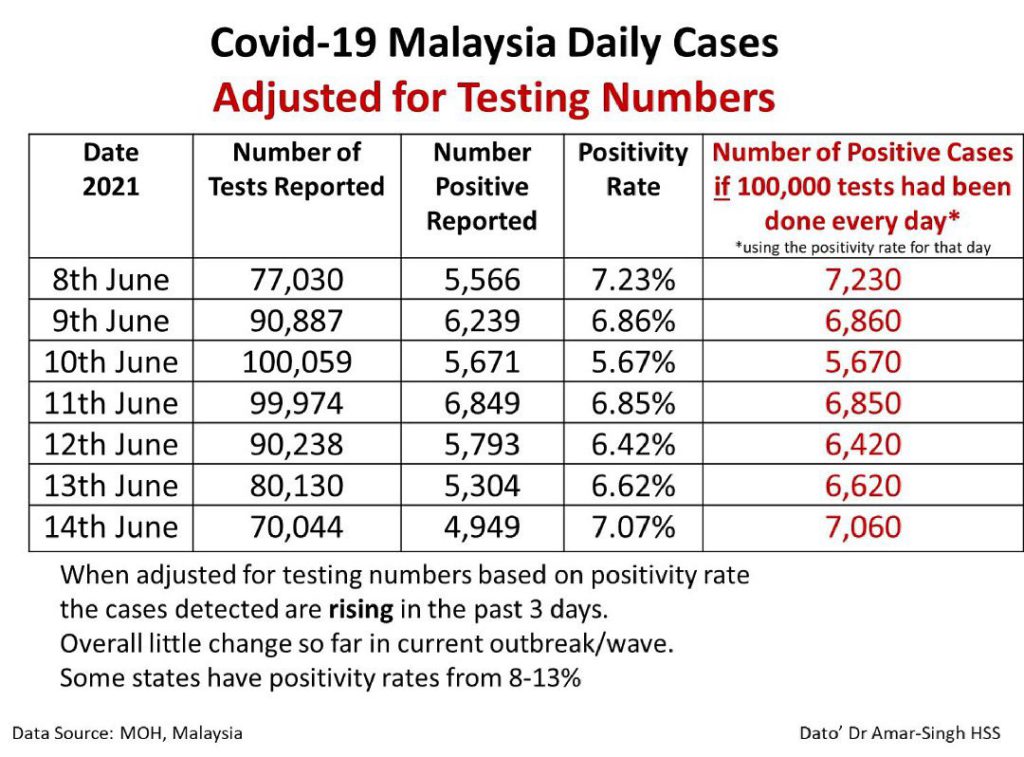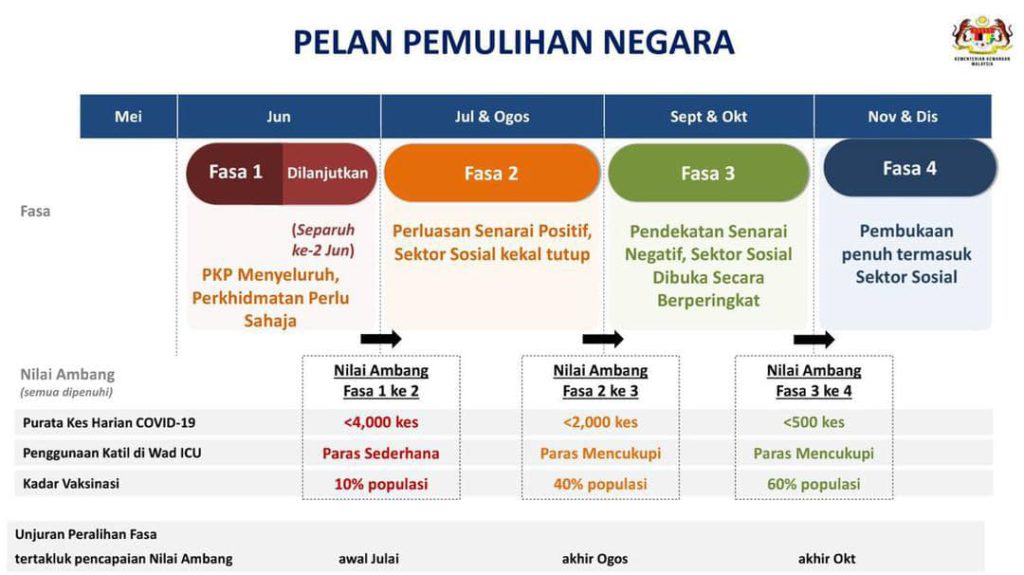In the past couple of weeks, we’ve seen our country’s Covid’s numbers slowly decline. This has served as a major relief for fellow Malaysians whose fears were running at an all-time high when the cases surpassed 9,000, less than a month ago. Although we are seeing a decrease, many of us are left wondering if these numbers are truly reflecting the situation at hand and struggling to decipher the actual state of Covid in our country.
When it comes to assessing the status of the pandemic there are a myriad of factors to consider – rate of vaccinations, rate of infectivity, rate of testing, status of lockdown and many many more. The government has made an effort to curtail the spike of daily numbers but many are left feeling abandoned by the lack of proper guidance. During the initial MCO, SOPs were unclear and contradictory with some of the population adopting a more relaxed attitude while others took it upon themselves to fully quarantine at home. This eventually led to the total lockdown which we are currently in the third week of. Only since then did the cases start going down, however, the community concerns lie in the fact that although the numbers decreased so did the rate of testing.
Some argue that if we had continued testing at the rate we did when the cases were 9,000+, the number would have remained within that range. However, one thing we can clearly see is that the rate of infectivity has slowly decreased which shows us that even though they are testing less, the rate in which individuals are getting covid has reduced.

Another way to look at this is to look at the rate of vaccinations. One of the most commendable things our government has done is really push the rate of vaccinations up with more than 200,000 people receiving their first and second dose today. This is the biggest source of hope for many Malaysians because we can see how countries like America and the UK are able to slowly open back up after vaccinating the majority of their population. So far, we haven’t seen the effects of the vaccines reflected in our numbers but within the next few months it’s likely that we will be able to achieve some semblance of herd immunity.
One other major concern within the population is the state of the economy. A variety of economic sectors have faced incredible hardship during this time with many SMEs being forced to shut down due to an inability to operate. Individuals all over the country have been left jobless due to budget cuts and without enough aid from the government, people are struggling to make ends meet. This is one of the biggest factors in the distrust and anger people are feeling towards the government mishandling of the pandemic.
Just yesterday, the government also released their exit strategy for the pandemic which includes 4 stages starting from June up to December. Each of the 4 phases has a goal for number of cases and percentage of population vaccinated. Many citizens were sharing their outrage and anger at this plan because the rate at which we are vaccinating, although immensely ramped up, is still very slow in comparison to other parts of the world and will impede the ability for Malaysians to get on with their lives.

It has been more than a year of living in this pandemic, the frustrations and anger of the community is understandable because many have suffered through losses of jobs, businesses and livelihoods while others have lost loved ones to the virus. In addition, this time last year our country was in a much better state with cases falling below 10 a day. The mishandling of the Sabah elections shows a direct line to the state of our country today and many are left feeling resentment for the handling of that situation.
The next few weeks will be very telling in how the rest of our year is going to look. Please do your part in ending the pandemic by registering to get vaccinated, staying home and staying safe.










